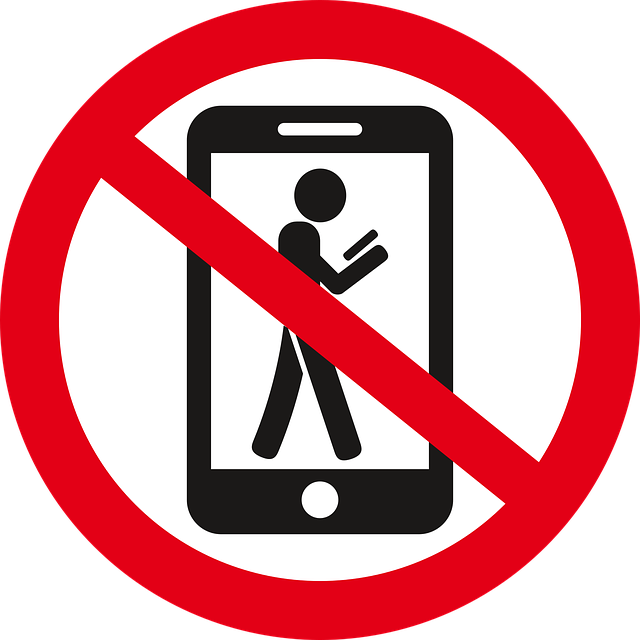Robocalls are a common problem in New Jersey, often violating the Telephone Consumer Protection Act (TCPA) and state spam call laws. If you've received unwanted automated calls, you may have legal options, including suing for damages and blocking future calls. In New Jersey, reputable spam call law firms or lawyers specializing in TCPA can help residents navigate their rights and seek compensation for frustration or financial loss caused by robocalls. Documenting evidence, such as caller details and messages, is crucial when considering legal action under the TCPA.
In the digital age, robocalls have become a ubiquitous yet unwanted nuisance. New Jersey residents face unique challenges when it comes to these automated calls, with strict regulations in place under the Telephone Consumer Protection Act (TCPA). This article guides you through understanding robocalls, your rights, and navigating legal action. Learn about suing for robocalls in New Jersey, engaging spam call law firms, gathering evidence, and steps to take if targeted. Equip yourself with knowledge and protect your rights against intrusive spam calls.
Understanding Robocalls and the TCPA in New Jersey
Robocalls are automated phone calls or messages that are made en masse to promote products or services and can be a significant nuisance for New Jersey residents. In many cases, these calls, known as “spam calls,” violate the Telephone Consumer Protection Act (TCPA), a federal law designed to protect consumers from unsolicited telephone marketing. The TCPA allows individuals to take legal action against companies that make or cause robocalls without their consent.
If you’ve received unwanted robocalls in New Jersey, you may have rights under the state’s spam call laws and the TCPA. You can potentially sue for damages and block future calls. A reputable spam call law firm or lawyer for TCPA in New Jersey can guide you through your legal options and help determine if you can take action against the culprits behind these unwanted calls, including seeking compensation for any frustration or financial loss they’ve caused.
Your Rights: Can You Sue for Robocalls in NJ?
In New Jersey, as in many states across the country, robocalls are regulated by the Telephone Consumer Protection Act (TCPA). This federal law grants consumers certain rights against unwanted automated phone calls, including the right to sue for damages if their privacy is invaded. If you’ve been plagued by relentless robocalls, knowing your legal options can be empowering.
If you believe you’ve received spam calls in violation of the TCPA, you may have grounds to take legal action. A spam call law firm or lawyer for TCPA New Jersey can help navigate the complexities of the law and advise on potential remedies. These may include financial compensation for each violative call, a permanent injunction against the caller, and other corrective measures designed to stop the nuisance once and for all. Don’t hesitate to explore your rights—there are resources available to assist Can I Sue For Robocalls New Jersey residents in reclaiming their peace of mind.
Navigating Spam Call Law Firms in New Jersey
In New Jersey, navigating spam call laws can seem like a complex task, but residents have options if they’ve been subjected to unwanted robocalls. If a caller uses an automated system or prerecorded message to make phone calls en masse, it’s considered a violation of the Telephone Consumer Protection Act (TCPA). This federal law gives consumers the right to sue for damages caused by spam calls.
If you believe you’ve been harmed by spam call law firms in New Jersey, consulting with a lawyer specializing in TCPA litigation is advisable. Spam call lawyers in New Jersey can help determine if a violation occurred and guide you through the legal process, including potential compensation for emotional distress or lost time caused by these intrusive calls. Remember, understanding your rights under the TCPA is key to standing up against unwanted robocalls.
Gathering Evidence to Support Your Case
If you’re a resident of New Jersey and are tired of receiving unwanted robocalls, you may have options to take action. Gathering evidence is a crucial step in supporting your case against spam calls. Start by documenting each incident, including the caller’s number, the date and time of the call, and any specific messages or offers made. You can save voicemails or text messages as backup proof. Additionally, note if the calls violate local laws or federal regulations, such as the Telephone Consumer Protection Act (TCPA).
Consider using technology to your advantage; there are apps designed to block and identify robocalls. Keep a log of these incidents, as it can be valuable evidence when considering legal action against the spam call law firms or individuals responsible. New Jersey’s Spam Call laws provide recourse for residents, and with proper documentation, you might be eligible to sue for compensation. Seek advice from a reputable lawyer specializing in TCPA cases to discuss your options and potential representation.
Steps to Take After Being Targeted by Robocalls
If you’ve been targeted by robocalls in New Jersey, there are several steps you can take to protect yourself and potentially pursue legal action. First, document every incident by recording the caller’s voice or taking notes on the details of each call, including the time, date, and specific messages left. This evidence will be crucial if you decide to file a complaint with the Federal Trade Commission (FTC) or seek legal advice from a spam call law firm in New Jersey.
Next, consider blocking the number using your phone’s settings to prevent further unwanted calls. Additionally, report the robocalls to your local TCPA lawyer in New Jersey who specializes in handling such cases. They can guide you on whether you have a valid case and help you understand your rights under the Telemarketing Consumer Protection Act (TCPA). Remember, knowing your rights is empowering, and with the right legal support, you might be eligible for compensation for each violation of your privacy.






